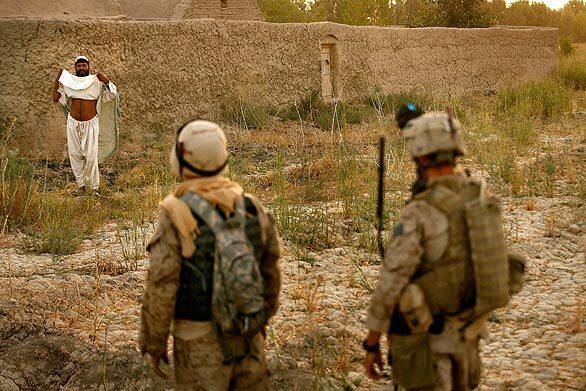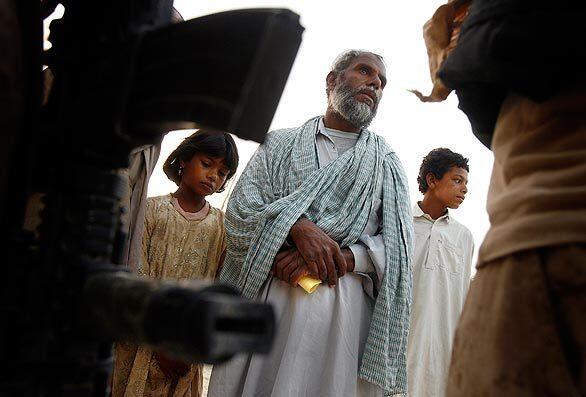
Abdul Rakani, with his daughter Narosa, 8, and son Nazar Ali, 11, complained to U.S. Marines that their fight with the Taliban had reduced his opium profits from $10,000 to $3,000. The poppy bulbs in his field had been scored only once or twice with a knife to coax out opium paste, rather than the three or four score marks for a full harvest. Rakani holds a yellow promissory note in his hands from the Marines who assessed the damage to his compound during the battle so that he could collect some money from the U.S. for the damage. (Rick Loomis / Los Angeles Times)
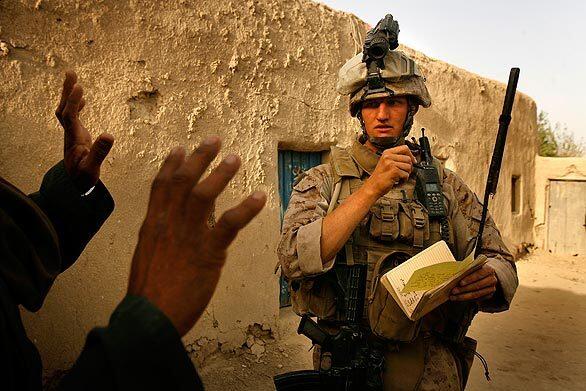
Marine 1st Lt. Shaun Miller tries to tally the damage to an Afghan’s home before handing him a promissory note for destruction caused by the Marines during a month of fighting that had recently taken place in the largely rural area in Helmand province. According to the military, the area, only about 40 miles from where Marines first landed in Afghanistan in 2001, had become a Taliban stronghold; it is one of the world’s major opium production regions. (Rick Loomis / Los Angeles Times)
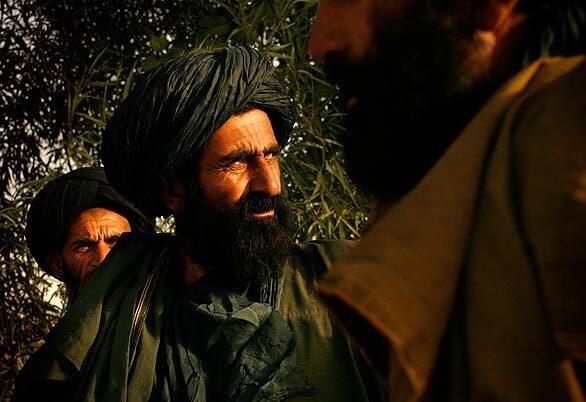
Residents of Garmser chat with U.S. Marines after being asked to roll up their sleeves so the Marines could assure themselves that the Afghans were carrying no weapons. The Marines had recently fought with Taliban fighters and were working to keep the area secure. (Rick Loomis / Los Angeles Times)
Advertisement
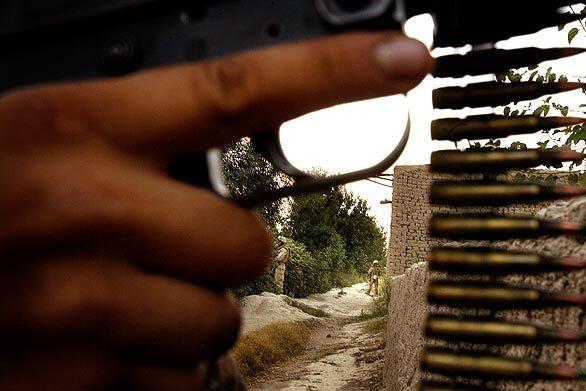
The Marines of Alpha Company conduct a foot patrol through Garmser, which until recently had been part of what Marines described as a Taliban stronghold. Many residents had yet to return after fleeing during the fighting. (Rick Loomis / Los Angeles Times)
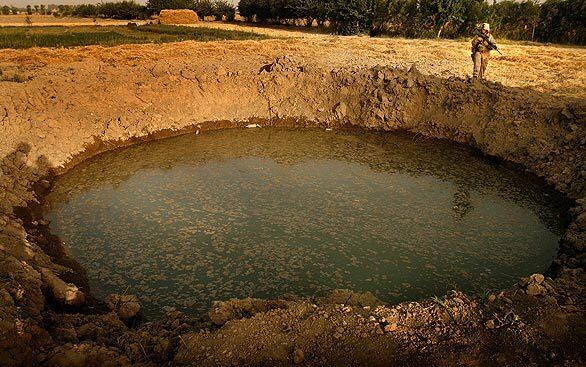
A Marine surveys the instant pond that was created after a 1,000-pound bomb was dropped on Garmser in May during heavy fighting between Taliban insurgents and the Marines. A nearby structure survived the blast, but an earlier sweep through the area found a detached foot floating in the water, according to one Marine. (Rick Loomis / Los Angeles Times)
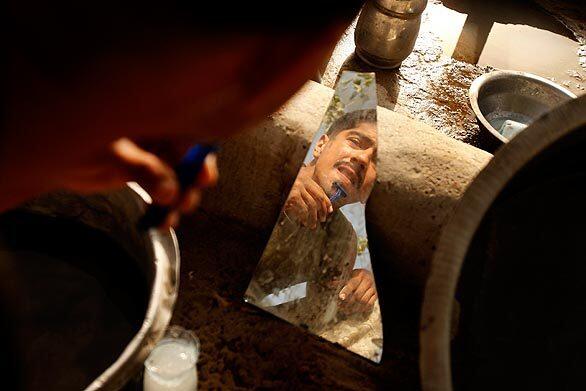
Cpl. Alex Guerra, 24, of Detroit, Mi., uses a broken mirror to shave outside a temporary base for the Marines of Alpha Company, who had recently fought with Taliban fighters in Afghanistan’s Helmand province. The U.S. troops were living in spartan conditions with no electricity, no running water and outside sleeping quarters. (Rick Loomis / Los Angeles Times)
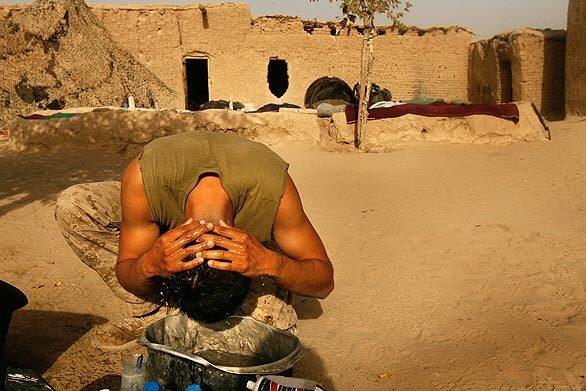
A Marine washes up with water from a well in a compound being used by Alpha Company in Garmser. (Rick Loomis / Los Angeles Times)
Advertisement
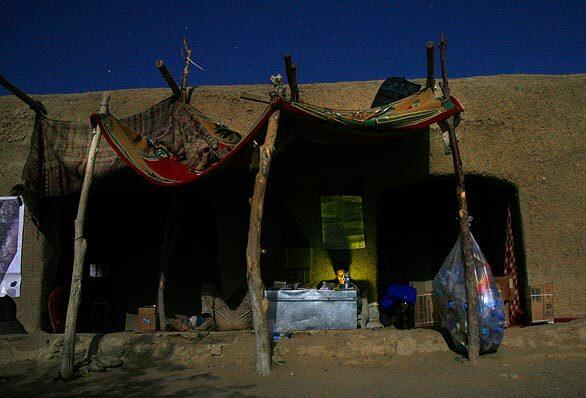
Cpl. Alex Guerra is caught in a glow of light during the night. The Marines of Alpha Company have made a temporary base in a rented compound in Garmser. (Rick Loomis / Los Angeles Times)
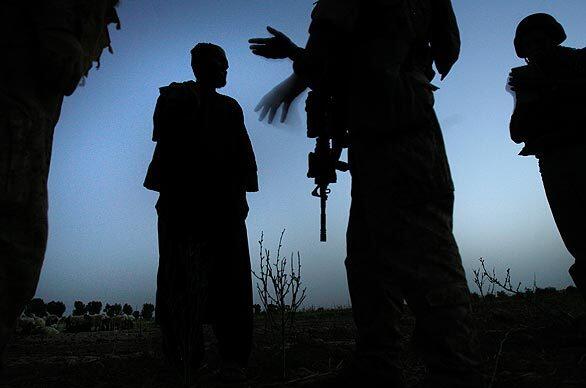
Sheep herder Noradeen, left, talks wih U.S. Marines on a dawn patrol through Garmser. Noradeen led the Marines to his compound so they could assess the damage and offer compensation. (Rick Loomis / Los Angeles Times)
